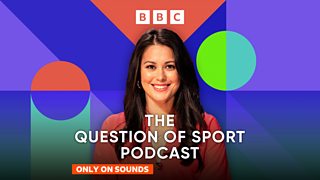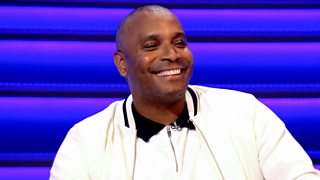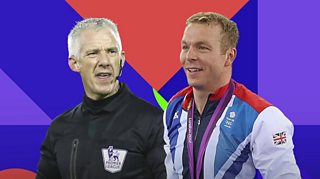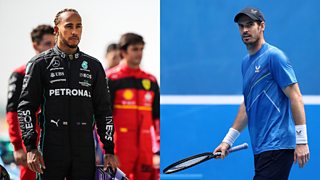Love, Deuce and Ace: Where do tennis terms come from?
The Question of Sport Podcast gives the team behind Question of Sport a chance to dig a bit deeper into some of the stranger stories and stats from the world of sport. So with former British tennis number one Johanna Konta as a guest, they couldn't resist delving into the etymology of some of her sport's best-known terminology.
-
![]()
Listen to The Question of Sport Podcast
Johanna Konta joins Sam Quek for a tennis special.
Love
During a game of tennis, when a player is yet to win a point their score is said to be "love" rather than "zero". This term goes back to tennis's French history, which is explained in depth in the podcast. Because a numerical zero – 0 – resembles a duck’s egg, a score of zero was known by the French for egg: l’oueuf. Over time the pronunciation changed to love.
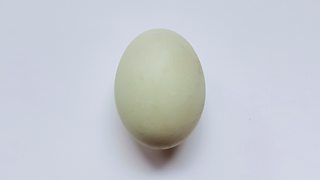
So there is no romance involved in this particular love, but the connection between duck's eggs and a zero score does extend to cricket, where a batter being out without scoring is known as a "duck".
Deuce
When scores are level at 40-40 in a game, the score is called "deuce". This term also goes back to a French origin. At that score a player will need to take two more points in a row to win the game. In French, it was said that it was "à deux de jeu" or "two [points] for the game". Again, over time the French became corrupted leading to the current term: deuce.
Ace
As Question of Sport head geek Gareth Edwards explains, the origins of many terms are hard to prove definitively. There is certainly some degree of conjecture about how the term "ace" came to mean a perfect, unreturnable serve. One theory is that it comes from World War One pilots who were known as "aces of the air" if they has shot down 10 of their enemies. In other words they’d produced the perfect shot and it hadn’t been returned.
But in fact the use of the term ace in tennis predates World War One, so it is much more likely that it simply comes from playing cards where the ace is so often an unbeatable card.

Seeds
When players are "seeded" in tournaments, in tennis as in many other sports, the top-ranked of them are kept apart in early rounds so that they will be likely to play each other in the latter stages.
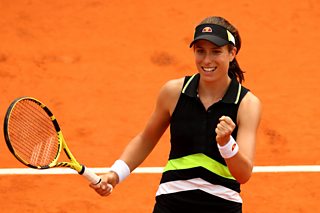
Unsurprisingly the term has its origins in horticulture. Gardeners will spread plants apart so that they do not impede each other's growth, much like the separating of the best players in the draw.
Grand Slam
The term "Grand Slam" is used in lots of sports in different contexts, but in tennis each of the four majors – the Australian, French and US Opens and Wimbledon – is known as a "Grand Slam". Possibly they should be called just a "Slam" as winning all four in the same year is also called "the Grand Slam".
It's another term that comes from card games, and in this case specifically from bridge, which dates back centuries. A Grand Slam in bridge involves winning all 13 tricks in a hand.
In the 1930s it became used in the press to talk about tennis players' exploits, first when Australian Jack Crawford narrowly missed out on completing the Grand Slam in 1933 then when American Don Budge did win all four majors in 1938.
There are variations on the Slam, such as the "Career Slam" when a player wins all four majors over the course of their career. This has led to the original term often being modified as "Calendar Slam".
The most impressive version is probably the "Golden Slam", which is to win all four majors and the Olympics in the same year. It was first achieved by German great Steffi Graf in 1988. Since then only wheelchair tennis players Diede de Groot and Dylan Alcott have emulated Graf's success. Both completed Golden Slams in 2021.
Don't forget to subscribe to The Question of Sport Podcast on 91热爆 Sounds.
Catch up with more stories from The Question of Sport Podcast
-
![]()
Listen to The Question of Sport Podcast
Subscribe now so you never miss an episode
-
![]()
The Clinton Morrison World Tour
Go on a journey with the retired footballer
-
![]()
Infamous mistaken identities
Some of the silliest cases of mistaken identity in sport
-
![]()
QUIZ: Is the sports star older or younger?
Is Lewis Hamilton older or younger than Andy Murray?
